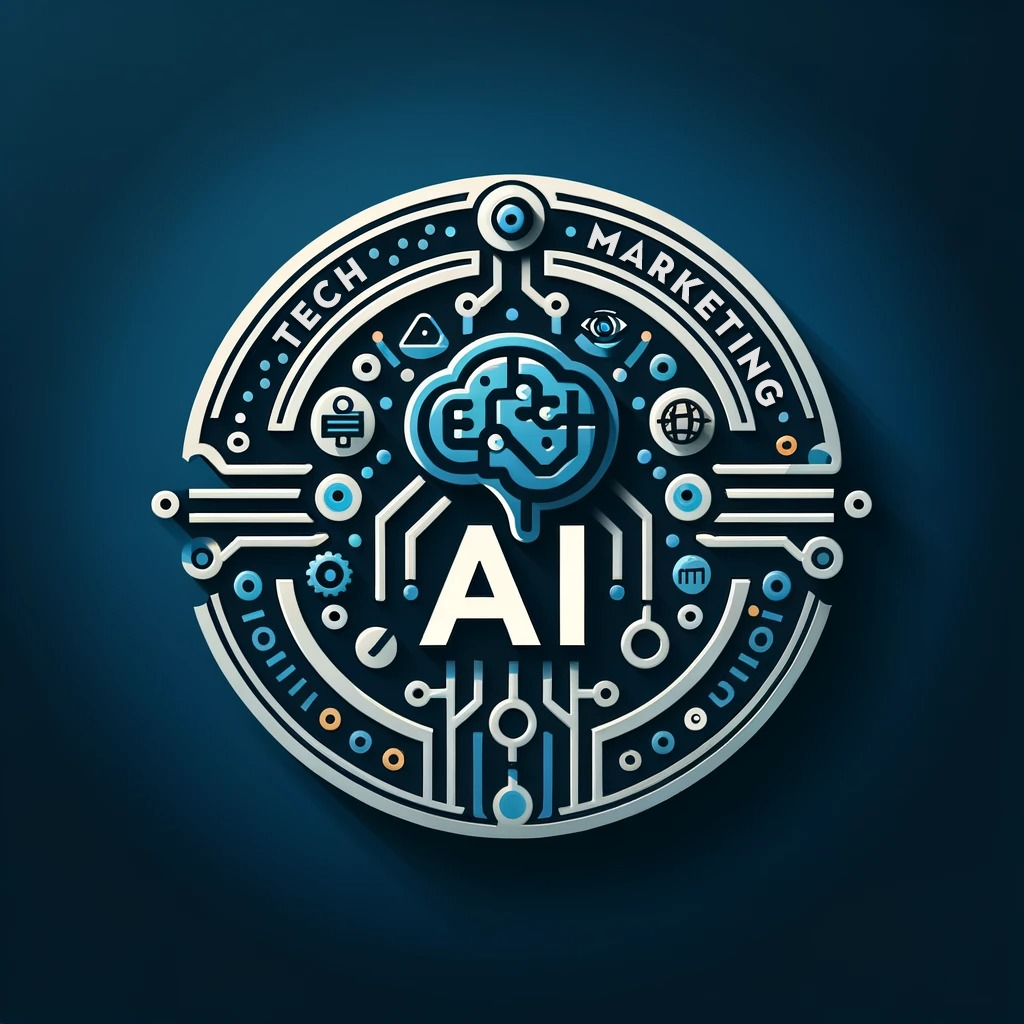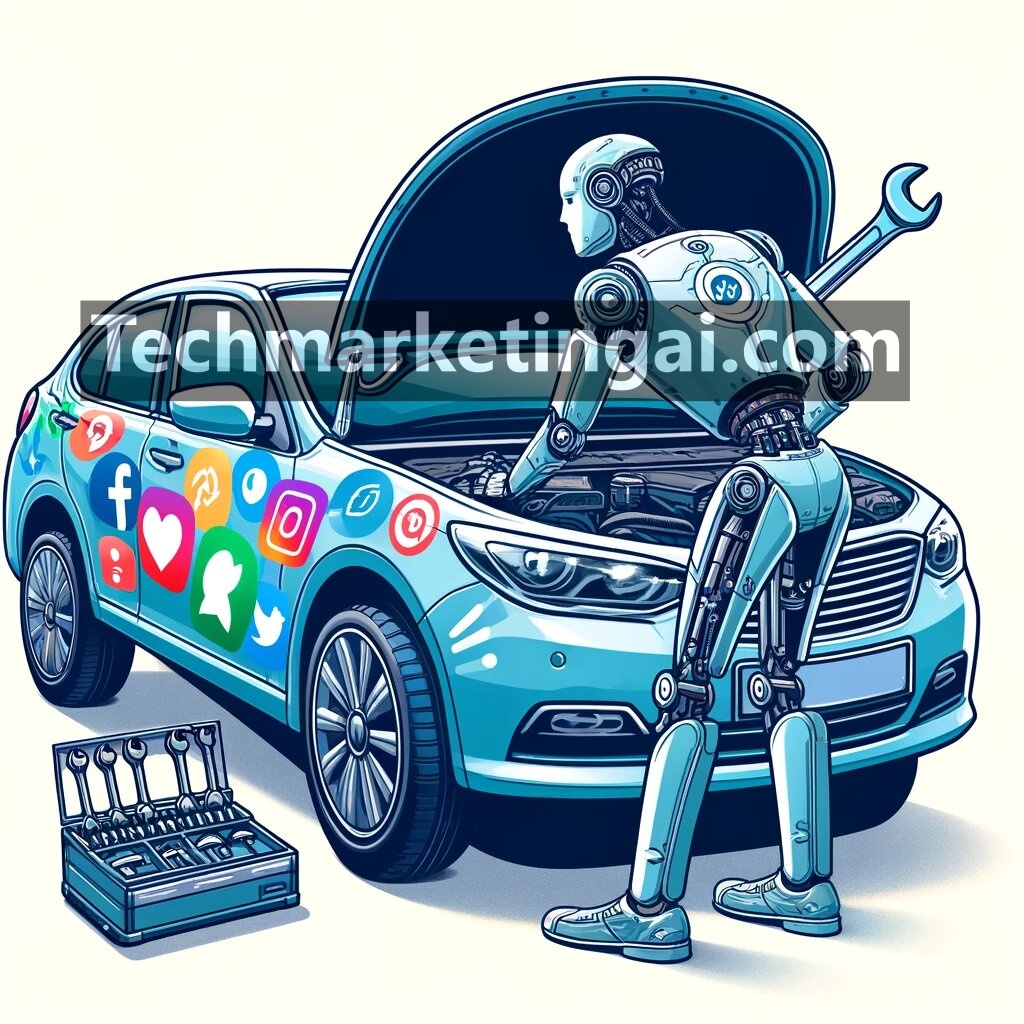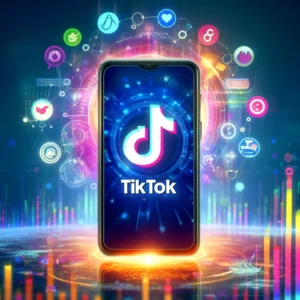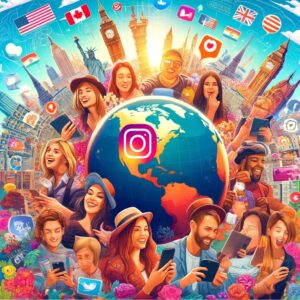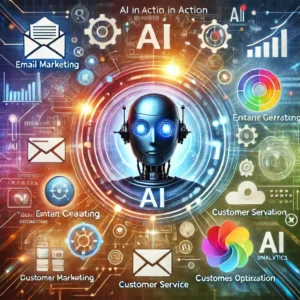In the digital age, where information overload is a constant challenge, AI-powered personalization in social media marketing stands out as a beacon of relevance and engagement. Leveraging the vast capabilities of artificial intelligence, brands are now able to dissect and utilize user data like never before, crafting marketing messages and content that resonate on a deeply personal level with their audience. This strategic approach is not just about enhancing user experience; it’s about redefining the dynamics of consumer engagement and significantly improving conversion rates.
The Power of AI in Personalization
Artificial Intelligence (AI) in social media marketing utilizes complex algorithms to analyze a user’s digital footprint—covering their interactions, preferences, and behavior across platforms. This analysis allows for the creation of a highly detailed user profile, which marketers can then use to tailor their content. According to a report by Statista, personalized marketing messages led to a staggering 50% increase in consumer interaction rates in 2021. Moreover, companies that implemented advanced personalization strategies saw a 20% uplift in sales, underscoring the potent impact of AI-driven customization.
The Mechanism Behind the Magic
AI personalization techniques hinge on data—lots of it. From the posts users like and share to the time they spend on certain content, AI systems aggregate and process this information to identify patterns and preferences. Machine learning algorithms then predict the type of content each user is likely to engage with, optimizing marketing efforts accordingly. For instance, a fashion brand could use AI to determine that a segment of its audience prefers eco-friendly products and tailor its content to highlight sustainability practices and eco-friendly collections, significantly increasing relevance and engagement.
Advantages of AI-Powered Personalization
- Enhanced User Engagement: By delivering content that aligns with individual preferences and interests, brands can significantly boost user engagement levels. AI’s ability to predict user behavior leads to more meaningful interactions, driving up metrics such as likes, shares, and comments.
- Increased Conversion Rates: Personalization goes beyond engagement; it directly influences purchasing decisions. A study by Epsilon found that 80% of consumers are more likely to make a purchase when brands offer personalized experiences. AI-driven personalization ensures that promotional content and product recommendations are highly relevant, making the path to purchase smoother and more intuitive.
- Improved Customer Loyalty: Personalized marketing fosters a sense of understanding and connection between brands and their customers. This not only attracts new customers but also retains existing ones, as they feel valued and understood on an individual level.
- Efficient Use of Marketing Resources: AI personalization helps in allocating marketing resources more effectively. By targeting only those users most likely to be interested in certain content or products, brands can reduce waste and increase the ROI of their marketing campaigns.
Modern Techniques in AI Personalization
- Predictive Analytics: This involves analyzing data to predict future actions of users. By understanding potential future behaviors, brands can craft proactive marketing strategies that align with predicted interests.
- Natural Language Processing (NLP): NLP is used to analyze social media conversations for sentiment analysis, enabling brands to tailor content based on the emotional tone and context of discussions related to their products or industry.
- Real-Time Personalization: AI algorithms can adjust marketing messages in real-time based on user actions. For example, if a user shows interest in a specific product category on a website, they could immediately see related content on the brand’s social media channels.
The integration of AI in social media marketing personalization is not just a trend; it’s a fundamental shift in how brands connect with their audience. By harnessing the power of AI to analyze and act on user data, marketers can create more relevant, engaging, and effective campaigns that not only capture attention but also drive action. As AI technology evolves, the potential for even more sophisticated personalization strategies becomes apparent, offering an exciting glimpse into the future of social media marketing.
As we delve deeper into the transformative power of AI-powered personalization in social media marketing, it becomes increasingly clear how this technology is reshaping the way brands interact with their audience. The contrast between traditional marketing techniques and modern AI-driven approaches is stark, akin to comparing a blunderbuss to a laser-guided missile in terms of precision and effectiveness. Where once marketers cast wide nets hoping to catch a few interested fish, they can now target specific species with the allure of their favorite bait.
The Shift from Shotgun to Sniper
Traditional marketing often felt like shouting into a void, blasting the same message to everyone and hoping it would resonate with someone. It was the equivalent of sending carrier pigeons with sales flyers, hoping they’d land in the hands of someone interested. AI, on the other hand, is like having a coffee with each customer, understanding their likes and dislikes, and then offering them exactly what they want. The difference in approach and outcome is monumental. For example, a bakery using traditional marketing might send out a generic ad for their new cake range to everyone in the city. In contrast, with AI personalization, they could send a message about their gluten-free options to those who’ve shown interest in gluten-free products on social media, significantly increasing the likelihood of engagement and purchase.
Real-World Genius and Giggles
Let’s take a humorous yet genuine example of AI personalization done right. Imagine a pet store that uses AI to track the browsing habits of its customers. One customer frequently looks at extravagant cat towers, but never makes a purchase. The AI picks up on this and starts showing the customer ads with cats lounging in similar towers under the tagline, “Even Mr. Whiskers deserves a penthouse view.” It’s a light-hearted, personalized approach that acknowledges the customer’s interests and adds a touch of humor to nudge them towards a purchase.
The Advantages of Laser Focus
The benefits of this shift to AI-driven personalization are immense. Engagement rates soar because content is relevant; it’s like telling a joke in a room full of people and having everyone laugh, rather than just a polite chuckle from a few. The precision of AI personalization means that marketing resources are not just thrown into the wind but are directed like guided missiles to their targets, dramatically improving ROI.
Modern Marvels and Techniques
AI’s capacity to personalize at scale introduces techniques that were once the stuff of science fiction. Imagine dynamic ads that not only change based on who’s viewing them but also adapt to real-world events in real-time. A sports apparel company could have AI that triggers specific sneaker ads featuring rain resistance to users in areas where it’s currently raining, combining weather data with personal preference.
Bridging the Past and Future
The journey from traditional to AI-powered marketing is like moving from horse-drawn carriages to self-driving cars. Both get you to your destination, but the latter does so with remarkable efficiency, safety, and comfort. The evolution of marketing through AI is not just about selling more; it’s about understanding more. It represents a shift towards a more empathetic, user-centered approach, where the value is provided not just through products but through the relevance and timing of each interaction.
The Future Beckons
As we stand on the precipice of this new era, the potential for AI in social media marketing is boundless. From virtual reality shopping experiences personalized to each user’s style and preferences to AI-driven avatars that provide shopping advice on social platforms, the line between digital and personal will continue to blur.
The conclusion, then, is not so much a conclusion as it is an invitation to imagine. An invitation to explore the untapped potential of AI in crafting marketing strategies that are not only effective but genuinely delightful. The future of marketing lies in the ability to not just reach out to the customer but to connect with them on a level that is both deeply personal and profoundly engaging. As we extend our reach into this future, it’s clear that the brands that succeed will be those that embrace AI not just as a tool for sales, but as a means to build genuine, lasting relationships with their audience.
